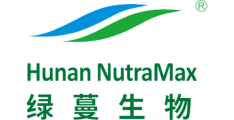
 Ten years of qualification
Ten years of qualification
 Audited Supplier
Audited Supplier
In This Store
Category:Natural Extracts > Plant Extracts
Product Name:100%Nutramax Supplier - Rosemary Extract6%-80%Carnosic Acid
CAS No.:77-52-1
Standard:ChP, In-house Standards
Price(USD):0.00
Company:HUNAN NUTRAMAX INC
Grade: Food Grade
Factory Location: Changsha Hunan China
Main Sales Markets: North America,Central/South America,Western Europe,Eastern Europe,Australasia,Asia,Middle East,Africa
Monthly Production Capacity: 3Tons/Month
Packaging Information: In fiber-drums with two-plastic bags inside.25kg/drum
Delivery Lead Time: 1-4 working days
Sample Provided: yes
Payment Terms: T/T
100%Natural Rosemary Extract
Product Name:Ursolic acid
CAS No. : 77-52-1
Specification:6%-80%Carnosic Acid
Appearance:White needle crystal Powder
Formula: C30H47O3
Molecular weight :455.6929
Solubility:Soluble in water, alcohol and ether, chloroform, insoluble in petroleum ether.
Usage: Pharmaceuticals, healthcares,and cosmetics
Brief Introduction
Ursolic acid is present in many plants, including apples, basil, bilberries, cranberries, elder flower, peppermint, rosemary, lavender, oregano, thyme, hawthorn, and prunes. Apple peels contain large quantities of ursolic acid and related compounds.Ursolic acid can serve as a starting material for synthesis of more potent bioactive derivatives, such as antitumor agents.
Main Functions
Ursolic acid is a pentacyclic triterpene acid, used in cosmetics,
that is also capable of inhibiting various types of cancer cells by inhibiting the STAT3 activation pathway and human fibrosarcoma cells by reducing the expression of matrix metalloproteinase-9 by acting through the glucocorticoid receptor. It has been found to reduce muscle atrophy and to stimulate muscle growth in mice. Ursolic acid has potential use as a cardioprotective compound.
Ursolic acid has been shown to increase the amount of muscle and brown fat
and decrease obesity and associated conditions when added to diets fed to mice.
1. Pharmacological Action:
Medicinal plants containing ursolic acid have been used in folk medicine before it was known which constituents were responsible for their therapeutic effectiveness. Contemporary scientific research which LED to the isolation and identification of ursolic acid revealed and confirmed that several pharmacological effects, such as, anti-tumor, hepatoprotective, anti-inflammatory (oral and topical), anti-ulcer, antimicrobial, anti-hyperlipidemic and antiviral, can be attributed to ursolic acid1.
However, its anti-inflammatory (topical), anti-tumor (skin cancer), and antimicrobial properties are pertinent to the cosmetic industry.
2. Anti-aging agent:
Ursolic acid treatment improves the health of skin and hair. Ursolic acid and its derivatives form oil-resistant barriers on the skin and hair as they do in the waxy coating of fruits6. Ursolic acid has been used to treat photoaged skin because it prevents and improves the appearance of wrinkles and age spots by restoring the skin's collagen bundle structures and its elasticity31. Concentrations of ursolic acid ranging from 0.01 to 50 mg have been reported for inclusion in skin treatment preparations 32-33.
3. Hair growth stimulant:
Ursolic acid and its isomer, oleanolic acid, have been used in to nics to enhance hair growth and prevent scalp irritation26, 27. Both triterpenoid compounds encourage hair growth by stimulating the peripheral blood flow in the scalp and activating the hair mother cells. They also furnish alopecia-preventing and dandruff-preventing effects27.
Antimicrobial activity:
β Ursolic acid (triterpenoid sapogenin from the ursan group) inhibited the growth of several strains of staphylococci28. Numerous ursolic acid containing plants from the Lamiaceae family exhibited antibacterial/ fungal activity29. The minimal inhibitory concentration of Rosmarinus officinalis, Origanum majorana, and Lavandula officinalis were 500, 250, and 500 mg/cm3, respectively29. Ursolic acid also inhibited the growth of Microsporium lenosum and Candida albicans at 250 mg/mL30

Contact Us
Tel: (+86) 400 610 1188
WhatsApp/Telegram/Wechat: +86 13621645194
Follow Us:




 Pharma Sources Insight January 2025
Pharma Sources Insight January 2025


